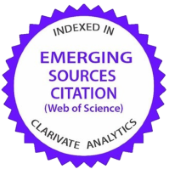MICE Tourism: How the Pandemic Has Changed It
DOI:
https://doi.org/10.29036/jots.v14i26.496Keywords:
MICE tourism, COVID-19, virtual events, hybrid MICE eventsAbstract
COVID-19 has become a real challenge for the tourism sphere. The pandemic hit MICE tourism the hardest, as it is primarily associated with mass business events. Our research aims to understand market expectations and assess the readiness of participants and organizers of MICE events to meet the challenges of modern conditions and the prospects for further development of the MICE industry. If individual trips resumed in August 2020, holding exhibitions, conferences, and congresses has not fully resumed even until now. Even in 2022-2023, some exhibitions and conferences were held online. The active development of online technologies called into question the continued existence of traditional formats for holding exhibition events. In the research, we surveyed the participants of MICE events about their attitudes towards virtual and live events to get feedback on the advantages and disadvantages of different event formats and identify market expectations. Although virtual events have become widespread, aiming to replace traditional live formats of MICE events, the study showed that most respondents are not ready to abandon offline events completely and actively plan to participate in them in the future. At the same time, the younger generation turned out to be more prone to online events. The study showed that the most promising format for MICE events is Hybrid, combining the advantages of virtual and live events.
Downloads
Downloads
Published
Issue
Section
License
Copyright (c) 2023 Journal of Tourism and Services

This work is licensed under a Creative Commons Attribution-NonCommercial-NoDerivatives 4.0 International License.
Journal of Tourism and Services (ISSN 1804-5650) is published by the Center for International Scientific Research of VŠO and VŠPP in cooperation with the following partners:
- Juraj Dobrila University of Pula, Faculty of Economics and Tourism, Croatia
- School of Business and Administration of the Polytechnic Institute of Setúbal, Portugal
- Szent István University, Faculty of Economics and Social Sciences, Hungary
- Pan-European University, Faculty of Business, Prague, Czech Republic
- Pan-European University, Faculty of Entrepreneurship and Law, Prague, Czech Republic
- University of Debrecen Faculty of Economics and Business, Hungary
- University of Zilina, Faculty of Operation and Economics of Transport and Communications, Slovakia
The publisher provides a free access policy to the Journal of Tourism and Services.





